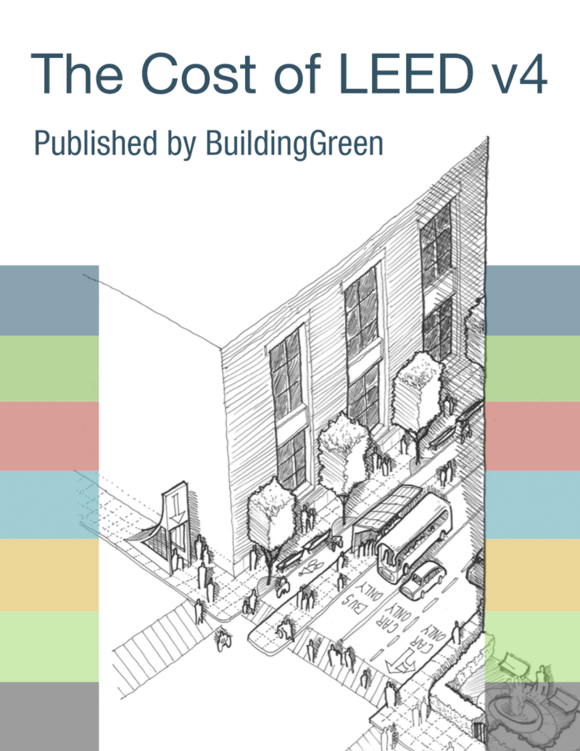LEEDuser’s viewpoint
Frank advice from LEED experts
LEED is changing all the time, and every project is unique. Even seasoned professionals can miss a critical detail and lose a credit or even a prerequisite at the last minute. Our expert advice guides our LEEDuser Premium members and saves you valuable time.
Credit language
Requirements
Option 1. High Priority Site (1 point BD&C except Core and Shell, 2 points Core and Shell)
Path 1. Economically Disadvantaged Community Location (1 point BD&C except Core and Shell, 2 points Core and Shell)
Locate within one of the following areas:
- Census tract* in which average household income is at or below 80% area median income (AMI)
- Census tract in which at least 20% of population is at or below poverty rate of state, provincial, or other regional jurisdiction
- Census tract in which unemployment is at least 150% of the state, provincial, or other regional jurisdiction.
*or local equivalent government-defined municipal tract for projects outside the U.S.
OR
Path 2. Brownfield Remediation (1 point BD&C except Core and Shell, 2 points Core and Shell)
Locate on a brownfield where soil or groundwater contamination has been identified, and where the local, state, or national authority (whichever has jurisdiction) requires its remediation. In cases of voluntary remediation by the project team, provide confirmation by the local, state, or national authority (whichever has jurisdiction) to verify that the site is a brownfield. Perform remediation to the satisfaction of the relevant authority.
AND/OR
Option 2. Equitable Development (1 point BD&C except Core and Shell, 2 points Core and Shell)
Path 1. Equity & Community Benefits (1 point BD&C except Core and Shell, 2 points Core and Shell)
Develop and implement an equity plan.
OR
Path 2. Affordable Housing in Residential or Mixed-Use Projects (1 point)
Include a proportion of new rental and/or for-sale dwelling units priced for households earning less than the AMI. Rental units must be maintained at affordable levels for a minimum of 15 years. Existing dwelling units are exempt from requirement calculations. Meet or exceed the minimum thresholds in Table 1. Projects must meet or exceed the minimum percentage of units mandated through inclusionary zoning by their local jurisdictions.
Table 1. Minimum affordable units
| Rental Dwelling Units |
10 percent of total rental units (or at least one unit) priced up to 60% AMI |
| For-Sale Dwelling Units |
5 percent of total for-sale units (or at least one unit) priced up to 80% AMI |
See all forum discussions about this credit »
What does it cost?
Cost estimates for this credit
On each BD+C v4 credit, LEEDuser offers the wisdom of a team of architects, engineers, cost estimators, and LEED experts with hundreds of LEED projects between then. They analyzed the sustainable design strategies associated with each LEED credit, but also to assign actual costs to those strategies.
Our tab contains overall cost guidance, notes on what “soft costs” to expect, and a strategy-by-strategy breakdown of what to consider and what it might cost, in percentage premiums, actual costs, or both.
This information is also available in a full PDF download in The Cost of LEED v4 report.
Learn more about The Cost of LEED v4 »
Addenda
4/9/2021 – Updated: 4/20/2021
Rating System Correction
Description of change: Revise the below LT credit intents as follows:
LTc Sensitive Land Protection
"To cultivate community resilience, avoid the development of environmentally sensitive lands that provide critical ecosystem services and reduce the environmental impact from the location of a building on a site."
LTc High Priority Site and Equitable Development
"To build the economic and social vitality of communities, encourage project location in areas with development constraints and promote the ecological, cultural, and community health of the surrounding area while understanding the needs and goals of existing residents and businesses."
LTc Surrounding Density and Diverse Uses
"To conserve land and protect farmland and wildlife habitat by encouraging development in areas with existing infrastructure. To support neighborhood and local economies, promote walkability and low or no carbon transportation, and reduce vehicle distance traveled for all. To improve public health by encouraging daily physical activity."
Internationally Applicable: No
11/9/2020 – Updated: 11/25/2020
Reference Guide Correction
Description of change: Under Step-by-Step Guidance for Option 2 – Path 2. Affordable Housing in Residential or Mixed-Use Projects
After "Step 3. Adjust Target Income for Each Dwelling Size" insert the following sentence:
Use Equation 2 and the appropriate bedroom (BR) factor(s) from the table below to calculate the adjusted target household income for each dwelling.
Equation 2. Adjusted target household income
Adjusted target income = Target income x BR factor
Under Step 4. Calculate Maximum Pricing, in the first bullet item beginning "For rental units..." delete "Equation 4" and replace with "Equation 3" and in the second bullet item beginning "For for-sale units..." delete "Equation 5" and replace with "Equation 4"
Under Step 4. Calculate Maximum Pricing, after the second bullet item beginning "For for-sale units..." insert the following language:
Equation 3. Maximum monthly rent
Maximum monthly rent = (Adjusted target income x 0.30) / 12
Equation 4. Maximum monthly principal, interest, taxes, and insurance
Maximum monthly PITI = (Adjusted target income x 0.28) / 12
Internationally Applicable: No
7/25/2019 – Updated: 7/30/2019
Rating System Correction
Description of change: Refer to the Credit LIbrary or attached resource to view all major changes to the High Priority Site credit in LEED v4.1
Internationally Applicable: No
7/25/2019 – Updated: 7/30/2019
Reference Guide Correction
Description of change: Refer to the Credit LIbrary or attached resource to view all major changes to the High Priority Site credit in LEED v4.1
Internationally Applicable: No
See all forum discussions about this credit »
Documentation toolkit
The motherlode of cheat sheets
LEEDuser’s Documentation Toolkit is loaded with calculators to help assess credit compliance, tracking spreadsheets for materials, sample templates to help guide your narratives and LEED Online submissions, and examples of actual submissions from certified LEED projects for you to check your work against. To get your plaque, start with the right toolkit.



